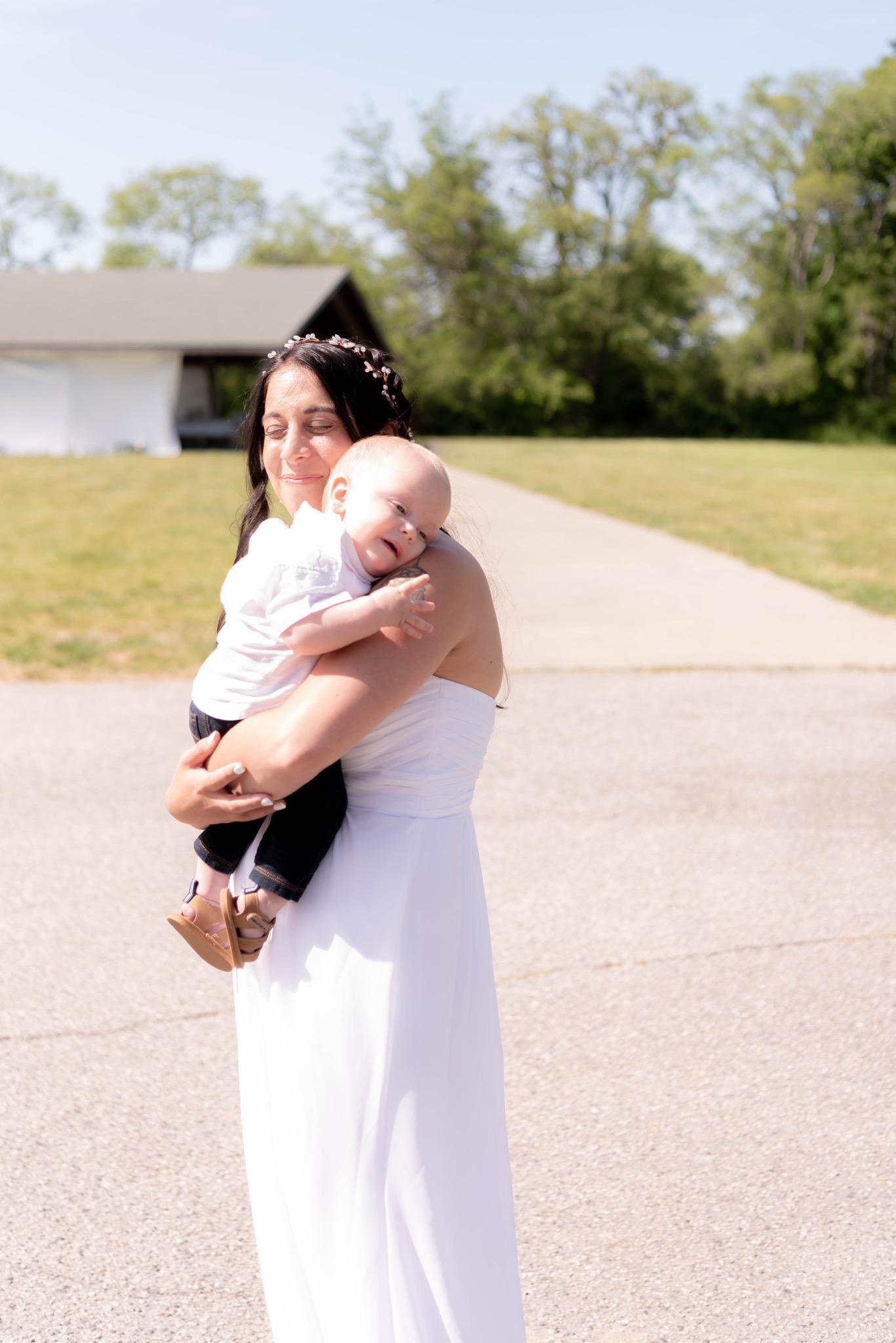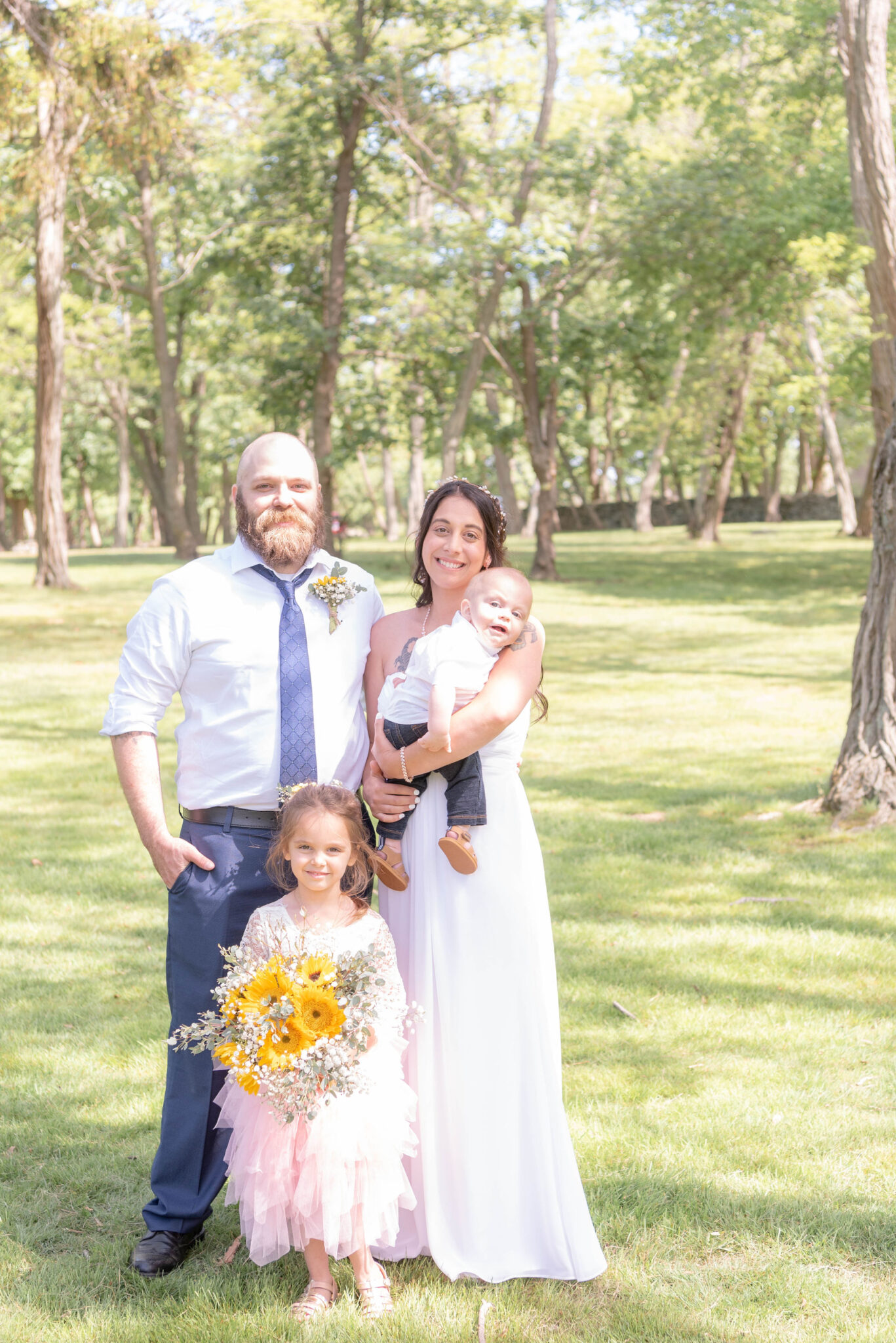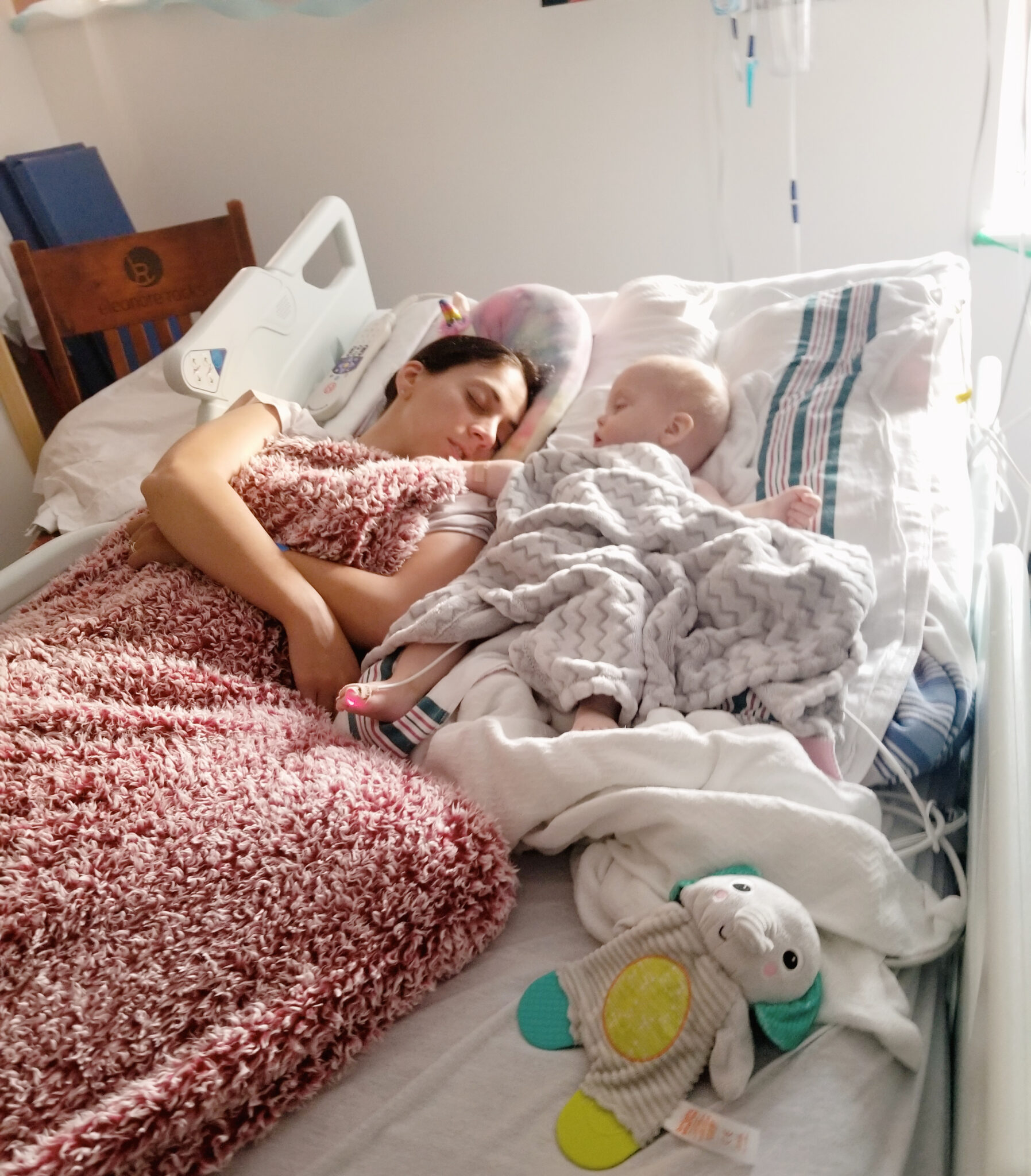Every morning, Nicole and Nick Paiva greeted their son, Rogan, the same way. “Super Rogie!” Nicole would say as she eased Rogan from his bed. Rogan, beaming, would lift both his arms in a Superman pose. He was joyful and ready for adventure. And like Superman, he was stronger than anyone could imagine.
Five months into Rogan’s journey with a rare, aggressive brain cancer, Nicole and Nick connected with HopeHealth’s Pediatric Supportive Services — a special team who could be just as strong for Rogan as he had been for them.
“Saying yes to hospice changed our lives,” says Nicole.
They share Rogan’s story in hopes it will help other families go through the unimaginable.
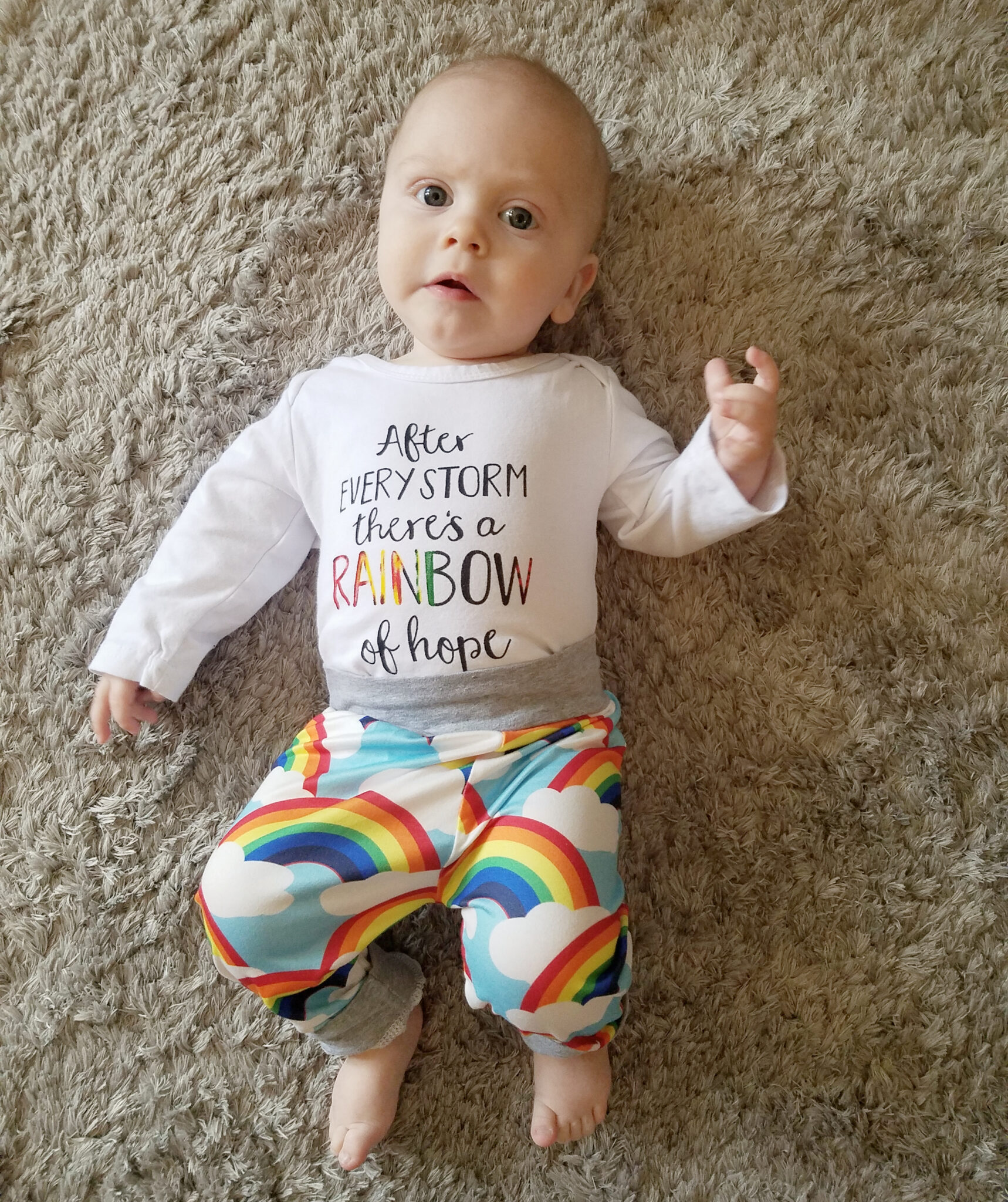
“We wanted the best quality of life for him”
At 7 months old, Nicole rushed Rogan to the hospital. It was discovered he had hydrocephalus and a cancerous brain tumor. The months that followed were filled with intense surgeries, hospitalizations and treatments. Throughout, Rogan still managed to light up every room he was in. As he grew from an infant to a toddler, his personality grew too. He was outgoing and mischievous, charming every doctor and nurse. He and his big sister became best friends. He developed an impeccable taste in music. When his favorite songs came on in the car, he’d bounce the whole car seat with his dancing.
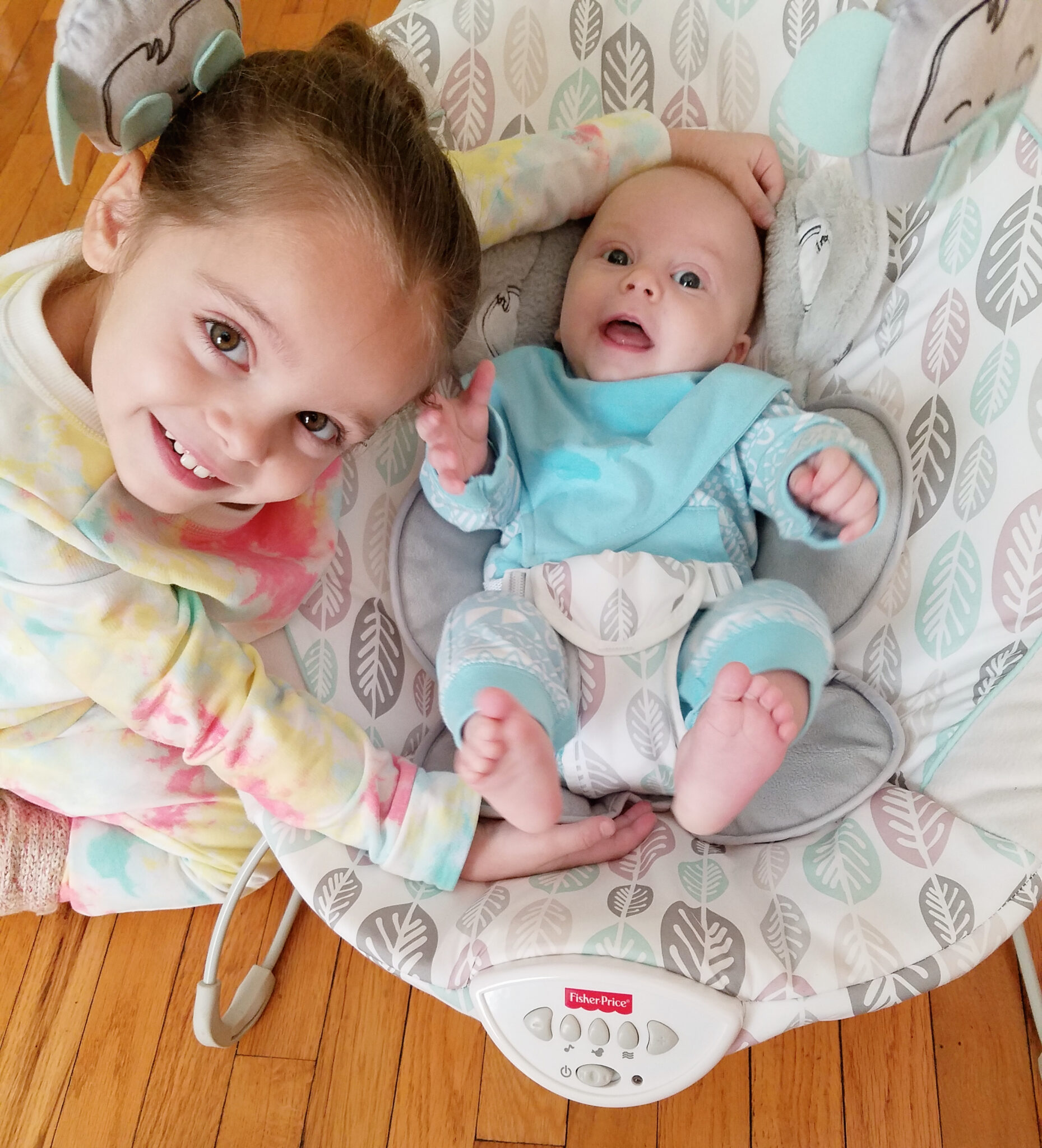
But after five months, after many rounds of chemotherapy, his health began to falter in other ways. Days after his 1st birthday, he was in the pediatric intensive care unit, sedated and on a ventilator.
Before, the family’s hopes were focused on a full recovery. Now, they learned, cancer treatments were no longer an option. Their hope was shifting to something else. At Rogan’s hospital bedside, Nicole remembers praying for him to get well enough to come home one more time. Incredibly, he did.
“We wanted the best quality of life for him,” says Nick.
Rogan’s care team talked to Nicole and Nick about the extra support they would need to bring Rogan home for the last stages of his life — to keep him feeling his best, and to help the whole family be his caregivers. This additional layer of care and support is available through Pediatric Supportive Services, HopeHealth’s pediatric hospice team.
Nicole’s first reaction was resistance. The word “hospice” scared her. She couldn’t picture what it might look like for a child. Even though kids and young adults can still continue treatments while receiving hospice, she worried it meant they were giving up.
It was Nick who said it first. “We need this,” he told Nicole. “We can’t do it alone.”
“I’m so thankful that Nick advocated for Rogan and hospice,” says Nicole. “If he hadn’t, I can’t imagine what our lives would have been. Rogan would have been in the hospital for another five months, instead of at home.”
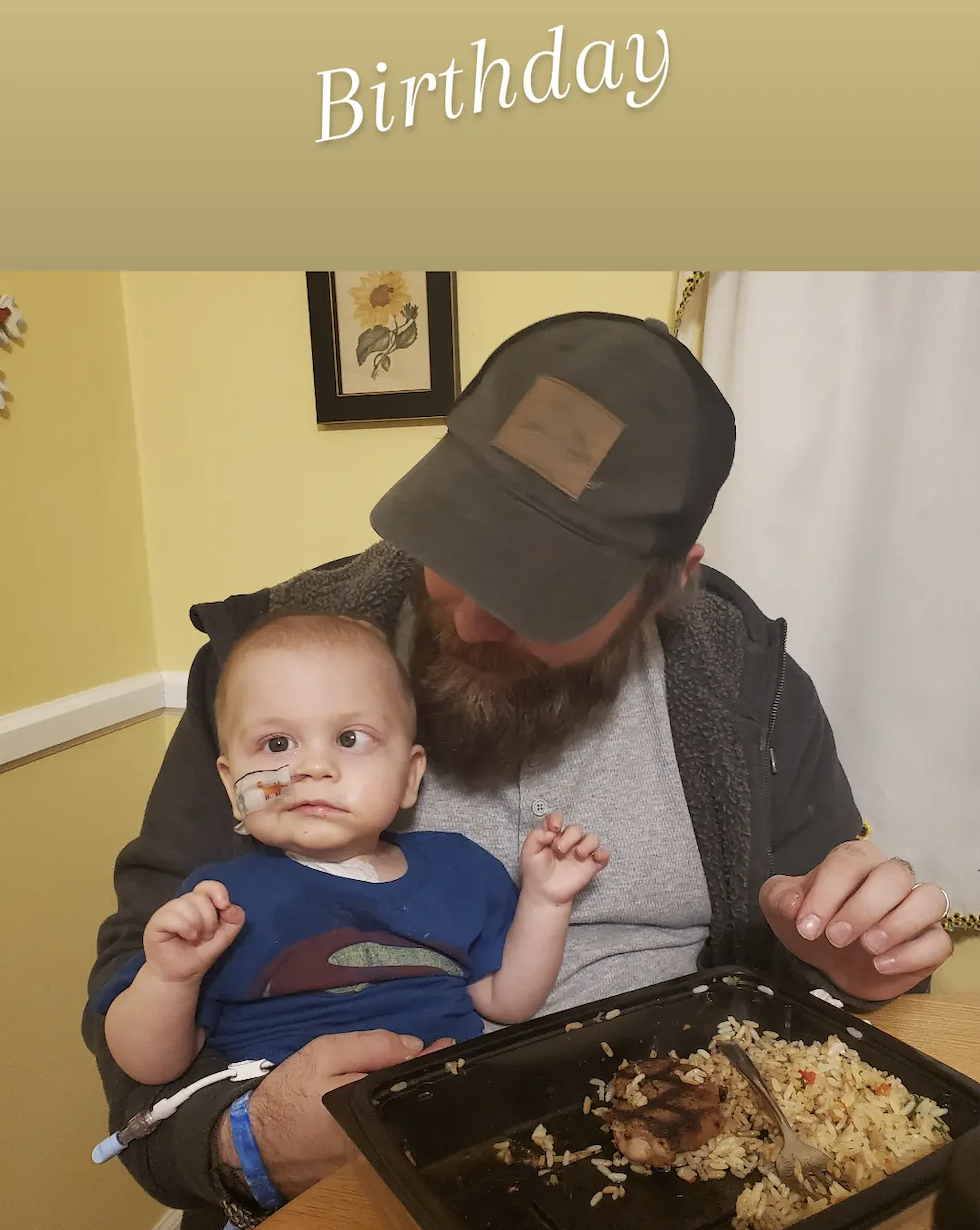
“Every second we needed her, she was there”
Pediatrician and hospice expert Rebecca MacDonell-Yilmaz, MD, MPH, leads HopeHealth’s Pediatric Supportive Services team. When she met with Nicole and Nick, she explained what the team can do for families like theirs — from 24/7 on-call medical help to special support for siblings.
She also introduced them to Maureen Booth, the nurse who would be with them every step of the way.
“Dr. Becky said, ‘I have the perfect person for you,’” Nicole remembers. “She was right.”
Over the next five months, Maureen visited the family as often as Rogan needed, providing medication and care to keep Rogan comfortable and out of the hospital. At Nick and Nicole’s request, she taught them how to handle some of Rogan’s medical needs themselves, so they had fewer people coming and going from their home. She helped them navigate difficult decisions. Amid all the uncertainty, she was a constant source of answers and support.
“Maureen gave us stability. She gave us strength,” says Nicole. “It was such a scary world. Maureen saved us. Every second we needed her, she was there.”
“Maureen was family,” says Nick.
Whenever Maureen walked in the room, Rogan would joyfully point to her. Maureen would point back, and they would press their fingers together — their special greeting.
> Related: 5 benefits of adding pediatric hospice when your child is seriously ill
“No matter what, we had that special time with Rogan”
Maureen also kept an eye on Rogan’s sister, Nora, who was about to turn 5 years old. Sometimes, when Nora needed the distraction, Maureen would simply play with her. Other times, she’d find her a helping role. “Will you hold the stethoscope?” Maureen would ask when she could see Nora wanted to be included. “Will you help me count?”
“Nora was Rogan’s biggest fan,” says Nicole. “Maureen did a great job making her feel like she had an important role in Rogan’s care, while making sure she wouldn’t see the rough things.”
Rogan had come home from the hospital on a feeding tube and bald from chemotherapy. In the months to follow, he grew strong enough to eat on his own. Thanks to careful adjustments in his medication, the pain, breathlessness and other symptoms from his illness were kept at bay. A wound that had once been infected healed. He gained weight, and his hair grew back in a mohawk, suiting his exuberant personality. He felt well enough for a family trip to the zoo.
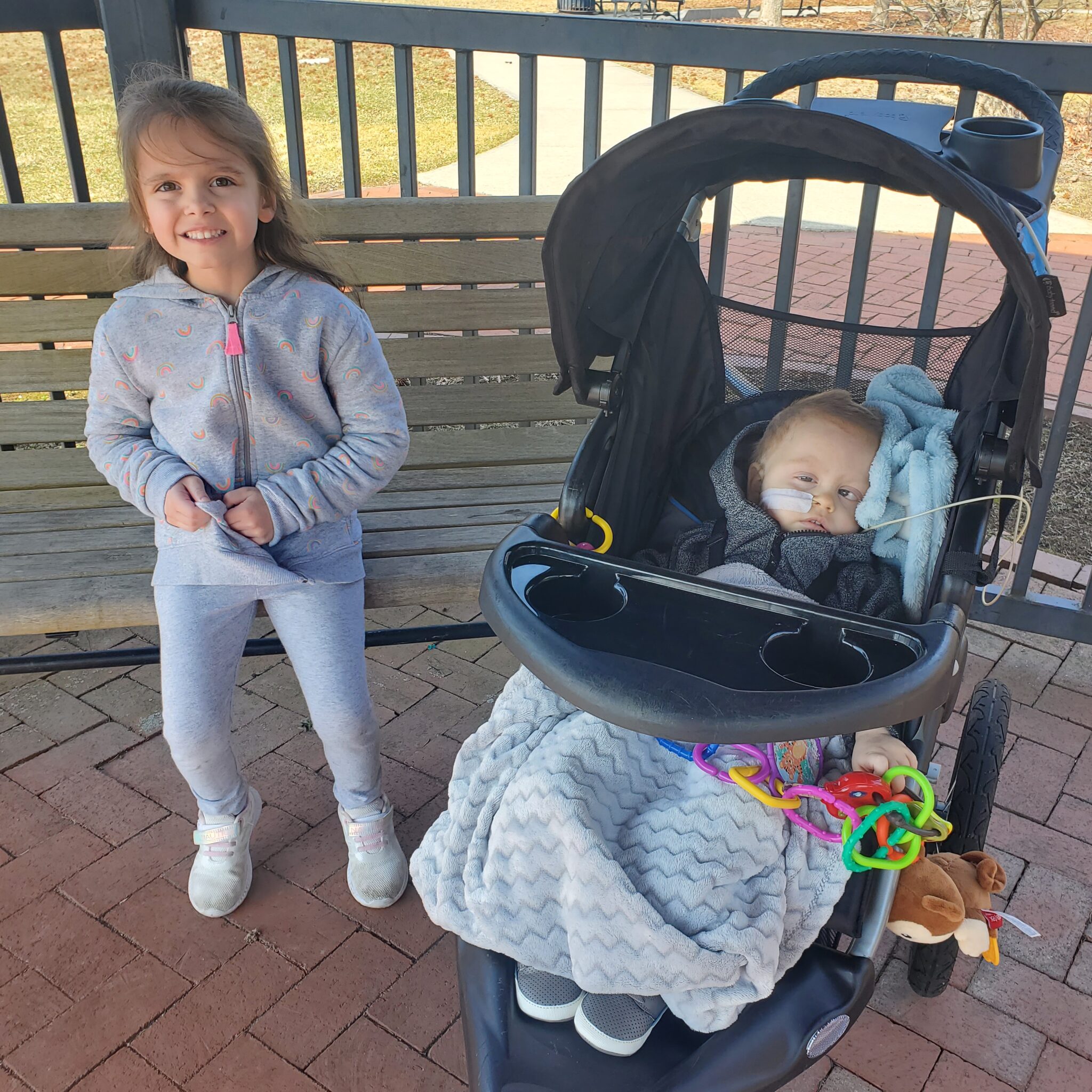
“I believe his mental state, his happiness, the love he was feeling being home — that made him feel better,” says Nicole. “Hospice gave us that.”
Nicole and Nick never stopped hoping, and fiercely trying, to find a cure for their son. Even so, they were aware of another kind of prayer coming true. For five precious months, he was at home with them, comfortable and feeling like himself.
“He always smiled, always laughed, because he was so well taken care of and so loved. That’s a special thing that hospice was able to do for us,” says Nicole. “Hospice isn’t just end of life. It’s quality of life while you’re transitioning. It’s being home, happy and comfortable. No matter what, we had those memories and that special time with Rogan. We’re so grateful we had that.”
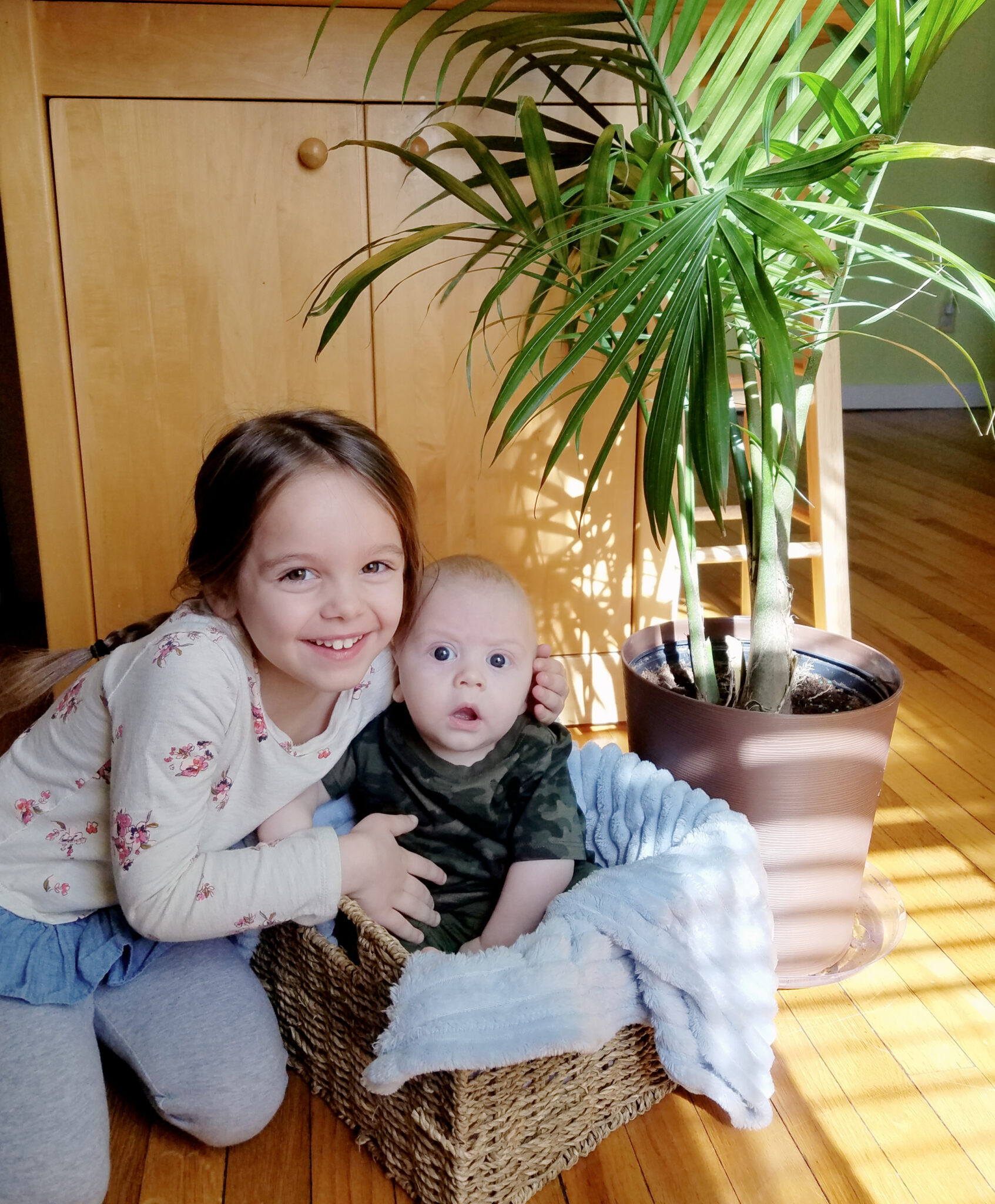
> Related: Activities to prepare your child for the death of a loved one
“Saying yes to hospice changed our lives”
Rogan passed away last March, snuggled between his mom and dad. Maureen was there too, close at hand for medical support to keep Rogan comfortable. In the weeks and months leading up to that day, she talked with Nick and Nicole about what to expect, and what their goals were. When they said goodbye, Rogan was surrounded by love and reassurance.
Every day since, and every day to come, Rogan is still with them. Nick and Nicole always think about his belly laugh, and how it would travel like a wave around the room, making everyone else laugh too. They think about his larger-than-life personality, and how quickly he bonded with everyone he met. Maureen keeps a picture of Rogan, playing with her stethoscope, taped to the back of the sun visor in her car.
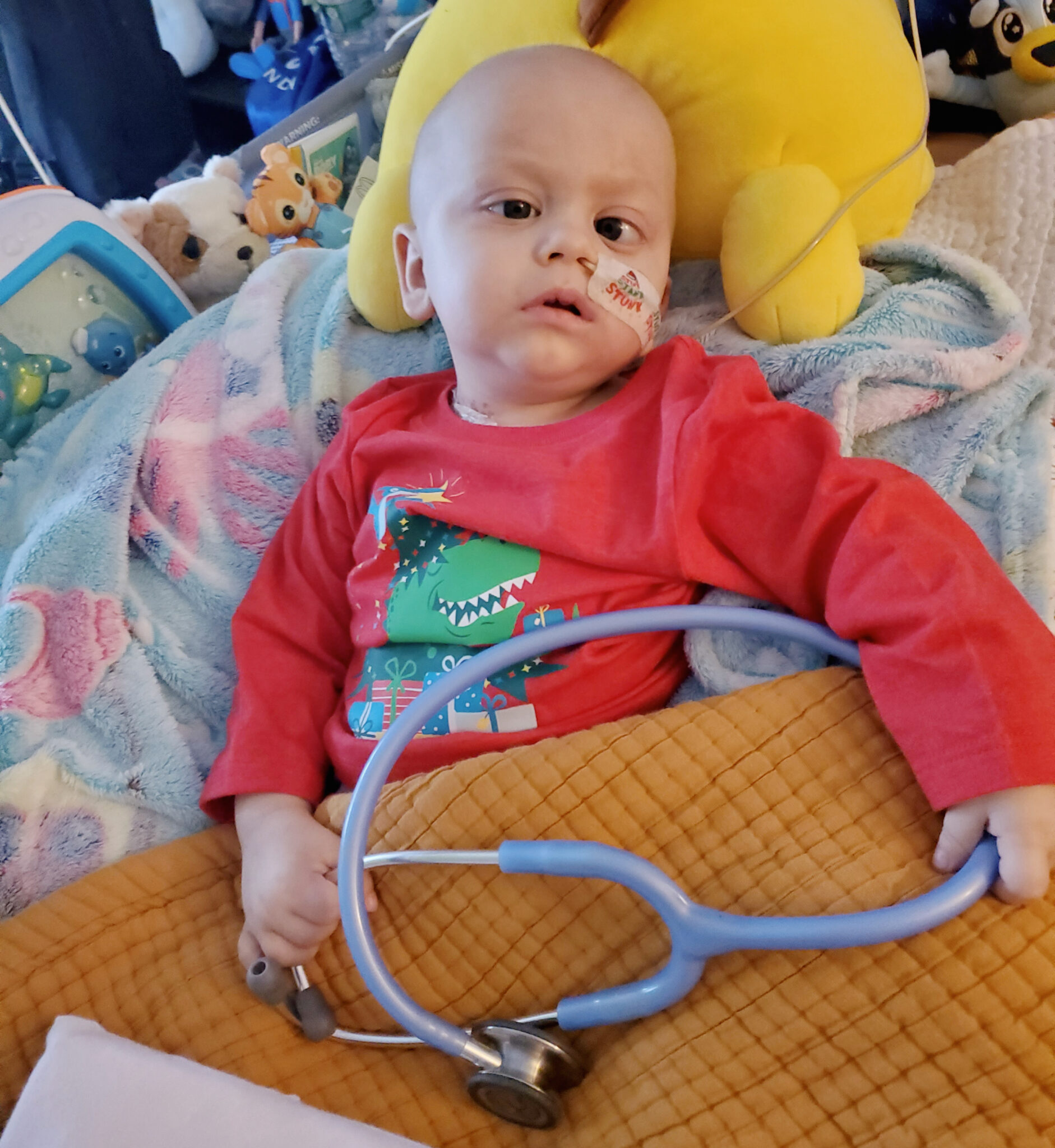
“He’s still part of the family. He lives on through us, through Nora. Through Maureen. There are so many people that he made an impact on,” says Nick.
By sharing Rogan’s experience with Pediatric Supportive Services, they hope he can make an impact on other children and families too — helping them say yes to extra support when they need it most.
“I think about families like us, scared and confused and going through something unimaginable,” says Nicole. “Saying yes to hospice changed our lives. Because we had that extra medical care and support, Rogan got everything he never would have had. He got to be home for five months and play with his toys and feel like a normal kid. We got all these beautiful memories and ways to honor him.”
“He was our little Superman,” she says. “He was a light.”
